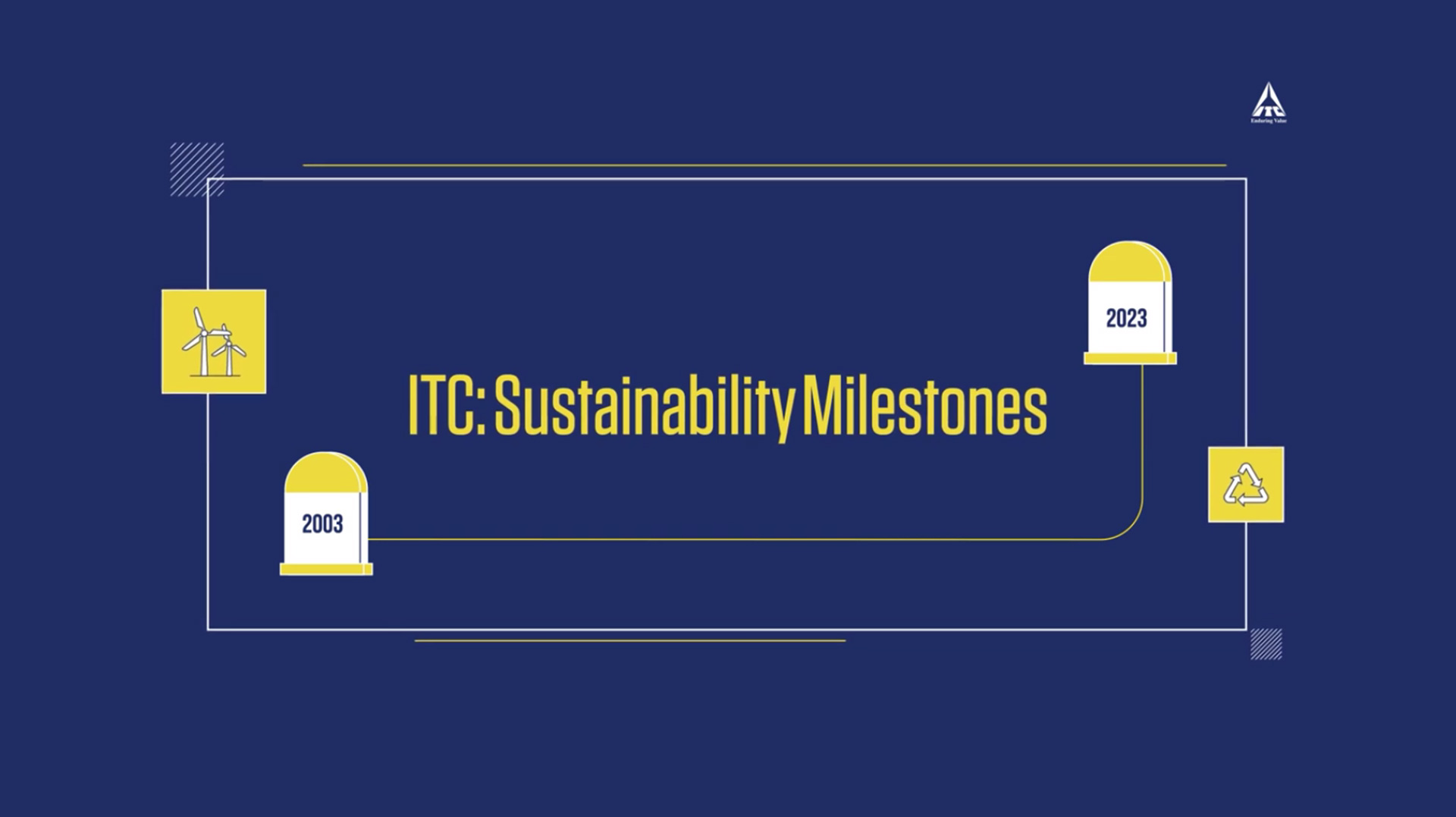Interventions directed towards making current livelihood sources - primarily agriculture and allied activities - more productive, profitable and sustainable, i.e. ITC's e-Choupal initiative and programmes for Watershed Development, Afforestation, Sustainable Agriculture, Livestock Development and Women's Economic Empowerment.
ITC's Sustainability
Initiatives
- Afforestation Programme
- Watershed Development Programme
- Sustainable Agriculture
- Livestock Development
- Women Empowerment
- Primary Education
- Skilling & Vocational Training
- Health & Sanitation
- Solid Waste Management









































